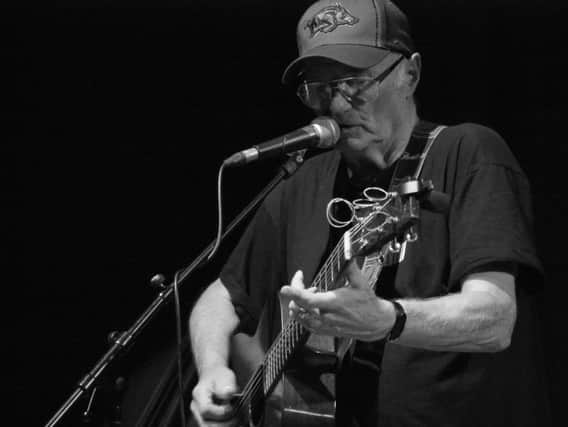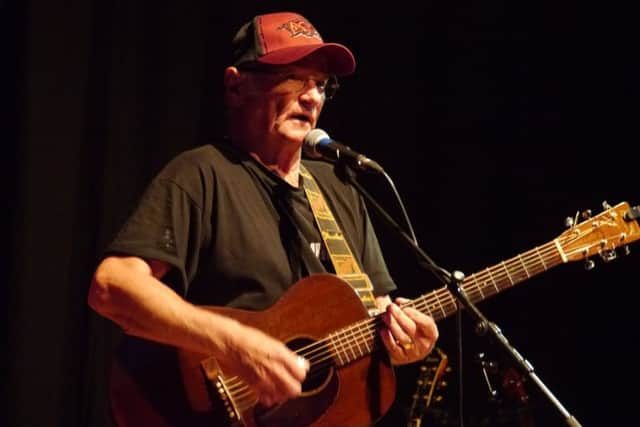Gig review: Michael Chapman at Seven Arts, Chapel Allerton, Leeds


Michael Chapman (who starts tonight’s bravura performance by pointing out how playing in Leeds is a strange experience for a Hunslet lad, the first in a line of drily self-deprecating song introductions) is occasionally left out of this colossally gifted roll-call. On tonight’s evidence, he belongs at the top of the list.
Most of his likeminded contemporaries have either exited the stage permanently or semi-retired. Dressed tonight in a rumbled T-shirt that looks like it’s seen as much of the highway as the artist himself, Chapman has never quite managed to build a substantial enough cult following to allow for a sporadic work-rate.
Advertisement
Hide AdAdvertisement
Hide AdThe 77-year-old remains a regular presence in the more intimate music venues around the world. Yet there’s not a whiff of tired routine to tonight’s generously portioned set, which gradually accrues a spellbinding quality that makes it seem considerably shorter than the hour and a half Chapman actually spends on stage.


Revered by such seminal figures from the leftfield of contemporary American music as Sonic Youth’s Thurston Moore, Steve Gunn and Hiss Golden Messenger’s MC Taylor, Chapman has enjoyed a bit of a comeback in recent years. Not that he ever went away, even though his activities in the decades that followed an early promise of mainstream success in the 1970s remained hidden to all but the faithful few. Much of the acclaim is centred on Chapman’s instrumental prowess.
This is entirely understandable: tonight, Chapman’s nimble, lightning-speed yet powerfully percussive picking on Trains resembles – aptly enough – a mighty steam engine picking up speed, suggesting that a duo or even a trio – as opposed to the solitarily solo and acoustic Chapman - must be responsible for all that captivating noise. The transcendentally beautiful Caddo Lake proves potently evocative of the calm Texan waterside environment that inspired it.
Honing in on Chapman’s guitar hero status can tend to overlook his genuinely superhuman powers as a songwriter. What’s more, there’s ample evidence to suggest that Chapman’s tune-crafting powers have become more refined in recent years.
Advertisement
Hide AdAdvertisement
Hide AdMore current selections, including the bruised The Mallard (preceded by an unusually serious recounting of the post-war morale-boosting role of the song’s namesake steam engine in the south Leeds community where Chapman grew up) and Another Story (a heartbreaking study of strained circumstances that toys with Americana clichés before comprehensively transcending them) draw impossibly moving depths of feeling from a few threadbare, world-weary lines, delivered in a craggy, cracked murmur that resembles what might emerge should the bottom of a busy ashtray ever step up to the microphone.
One Time Thing (off 1969 debut Rainmaker) transcends its origins as a standard-issue roving musician’s lament to become an uncommonly moving exercise in an older person looking back with bittersweet wistfulness – and perhaps cringing a bit – at his younger self’s exploits.
“I send a prayer down below”, Chapman croaks during Sometimes You Just Drive, a set-closing, apocalyptic highlight off last year’s 50, possibly Chapman’s finest album after over half a century in the business. As the rapturous applause from sizable, thoroughly attentive audience dies down, you may well end up sending out some sort of a plea to a deity or a higher power that a larger proportion of the population finally tuned in to this serious talent who is thankfully still in active circulation.